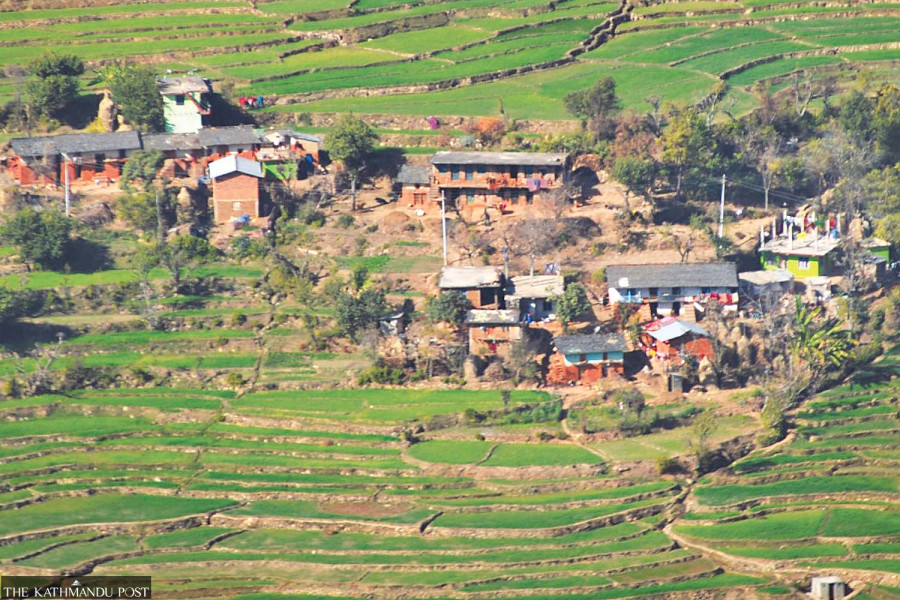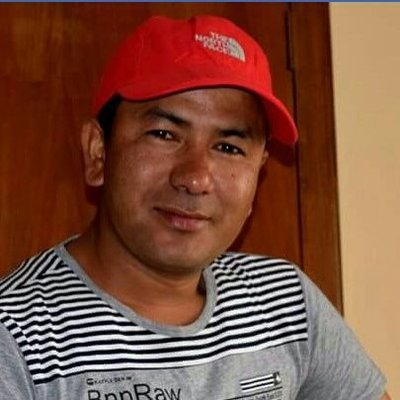Sudurpaschim Province
Baitadi local unit changes names of Dalit settlements to assuage caste discrimination
Residents say name change is a good step but attitudes towards Dalits have not changed.
Basant Pratap Singh
In September last year, a 36-year-old woman from Bhattad settlement of Patan Municipality-6 in Baitadi was in the neighbouring village of Silanga in Ward No 2 for work. She felt thirsty and decided to stop at a house and ask for water.
The landlady of the house stepped out of her kitchen with a glass of water for the visitor and asked the latter where she was from. When the woman replied she was from Bhattad, the landlady poured the glass of water into a jug used in the bathroom and offered the water to the visitor.
“When she heard I was from Bhattad, a Dalit settlement, she immediately transferred the glass of water into a jug used in the bathroom,” said the woman. “I refused to drink her water and went next door looking to quench my thirst.”
She told of her experience in the neighbouring houses and the incident became the talk of the town. “But I didn’t take any legal action against the woman who discriminated against me because of my caste. This wasn’t the first time I was experiencing caste-based discrimination,” she said. “I can’t keep pressing charges against people who are casteist. I won’t have time to do anything else in my life if I pursue such incidents.”
According to Deputy Superintendent of Police Prem Shahi, not a single case related to untouchability and caste-based discrimination has been registered at the District Police Office in Baitadi in the current fiscal year.
A majority of the population of Dumcheda in Patan-5 are Luhar, Oda and Koli; another settlement Dumeoda is the settlement of Hudke, Oda and Luhar. People of the Bhul caste live in Bhuleoda, Aauji in Aaujioda while Bhad and Kumal live at Bhattada in Patan-6.
The names of the settlements are derived from the dominant Dalit castes living there. The branding of these villages as Dalit settlements has widened the caste division in the local community, say locals.
To avoid being discriminated against, the locals of these settlements more often than not hide their identity and do not disclose the name of their village.
Kamal Singh Bohara of Patan-6, deputy mayor of the municipality, says growing up he saw his school friends from Dalit settlements face caste-based discrimination, even at school, so they had to hide their identity. “When asked where they are from, my friends would say they are from Patan,” said Bohara.
Bohara, a non-Dalit, when elected the deputy mayor of the municipality in May last year, took the initiative to change the names of the Dalit settlements. He lobbied the local authorities to change the names of the settlements.
“I took the initiative to change the derogatory names of the settlements which hugely discriminated against Dalit people,” said Bohara. “The municipal council meeting held a few months ago changed the names of six Dalit settlements.”

Dumcheda was renamed as Ranighat; Dumeoda as Srijanatol, Tallo Bhuleoda as Basaratol, Aujioda as Tilagun, Bhuleoda as Dhungeokhal and Bhattad as Bayalpata.
While the change in the name of the settlements has lessened the burden of carrying a derogatory name to some extent, the residents of the Dalit communities say change has occurred only on the surface and has not made a big difference in the fight against caste-based discrimination.
“Yes, it has been easier for us to introduce our village after the name change. People do not judge us when they hear the name of our village but that’s the extent of change that has happened,” said Harish Bhul of Dhungeokhal.
Nirmala Aauji of Tilagaun sees no point in the name change because, after an initial introduction, the other person is bound to seek details of her caste and upon learning that she is Dalit, their behaviour towards her changes markedly.
“What is the use of changing the names of the settlements if the situation of the people from the settlement is to remain the same?” she asked. “Our caste has prevented us from any success in life. We live on someone else’s land and struggle to make a living. But the municipality is not concerned about these problems. They have focussed on only superficial changes that do nothing for us.”
Gauri Singh Rawal, the mayor of Patan Municipality, agrees that the local government has to do a lot more to eradicate caste-based discrimination practised in the villages but hopes that the name change will become the harbinger of positive changes in society.
“Our first step towards fighting caste-based discrimination is changing the names of the settlements that carry derogatory names. We are now working towards improving the economic condition of the Dalits,” said Rawal. “The municipality will soon address the problems of health, education, drinking water and employment in the Dalit settlements.”
Although Nepal has made remarkable achievements to ensure the rights of Dalits, discriminatory practices are still prevalent in society, say Dalit rights campaigners.
Nepal enacted a law criminalising caste-based discrimination 11 years ago. The Caste-Based Discrimination and Untouchability [Offence and Punishment] Act prohibits any discrimination on the basis of caste in any public or private sphere.
Section 2A (1) of the Act says each person shall have the right against untouchability and discrimination while Section 3 prohibits untouchability and discrimination. Section 3(1) says no one shall commit, or cause to commit untouchability and discrimination.
The Constitution of Nepal 2015 also has provisions against discrimination.
Article 24 (1) states that no person shall be subjected to any form of untouchability or discrimination in any private and public places on grounds of his or her origin, caste, tribe, community, profession, occupation or physical condition.
Clause 5 of the Article states that any act of untouchability and discrimination in any form committed in contravention of the constitutional provision shall be punishable by law as a severe social offence, and the victim of such act shall have the right to obtain compensation in accordance with the law.
Also, Article 40 ensures the economic, social and political rights of Dalits.
However, despite all the legal measures, caste-based discrimination continues, says Ramesh Koli, a Dalit campaigner who is also an executive committee member of Patan Municipality.
“Caste-based discrimination is still in practice across the district,” said Koli. It is imperative to include Dalits while making plans and policies for their socio-economic upliftment. “But Patan Municipality does not hold discussions with the Dalit communities,” she said. “The local body is reluctant to provide a budget for Dalit causes. Once these issues are factored in, one can see that superficial changes do nothing for Dalits. It’s only a publicity stunt.”




 13.12°C Kathmandu
13.12°C Kathmandu















